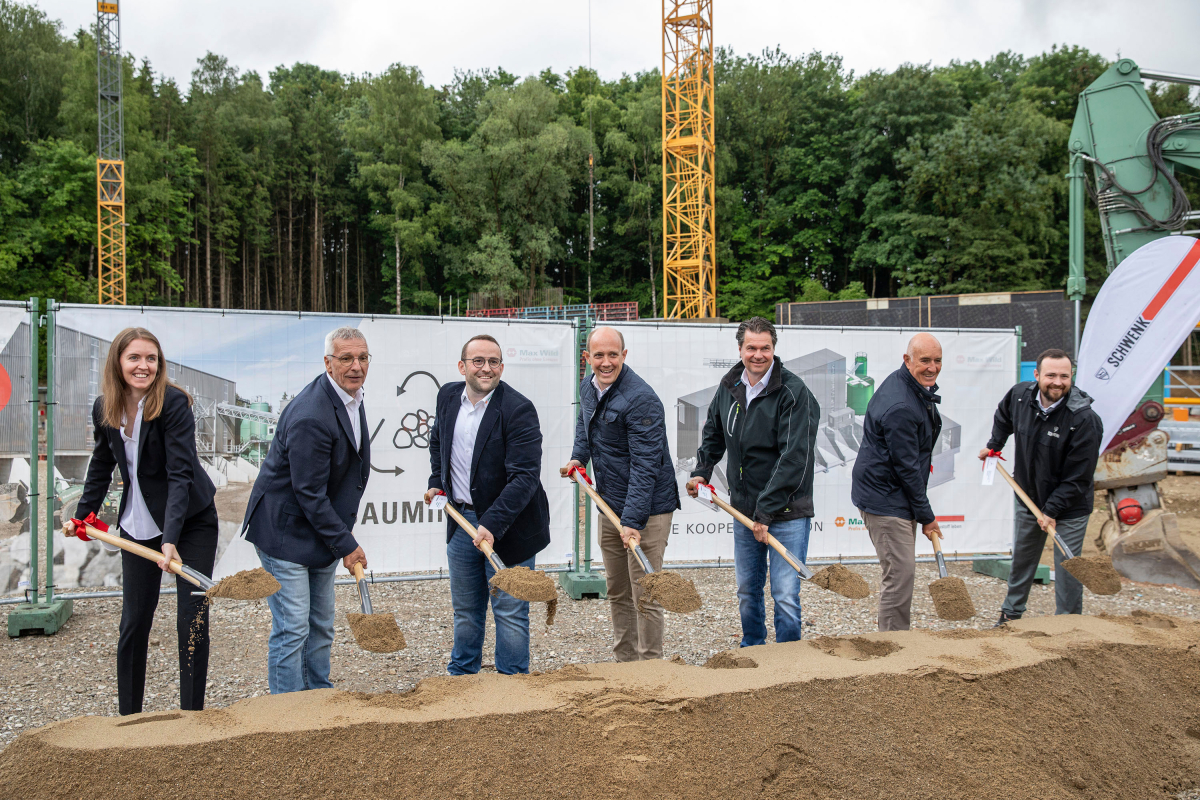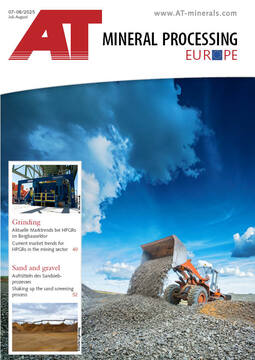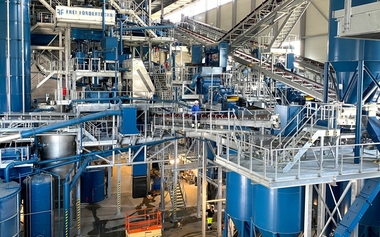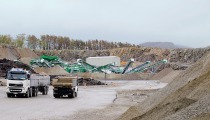Ground-breaking ceremony for new soil washing plant for processing mineral construction waste
 Starting the offensive for building material recycling in the district of Biberach and the Alb-Donau district together, at the ground-breaking ceremony for the new soil washing plant in Achstetten, from left: Leonie Bertz (Project Manager), Dr. Gregor Silvers (Head of Environmental Business Unit) and Elias Haitz (Senior Site Manager Environment; all Max Wild GmbH), Markus Wild and Joachim Kainz (both Managing Directors of SW BAUMINERALIK Donau-Iller GmbH & Co. KG), Max Wild (Partner Max Wild GmbH) and Patrik Schleicher (Partner of SCHWENK Baustoffgruppe)
Starting the offensive for building material recycling in the district of Biberach and the Alb-Donau district together, at the ground-breaking ceremony for the new soil washing plant in Achstetten, from left: Leonie Bertz (Project Manager), Dr. Gregor Silvers (Head of Environmental Business Unit) and Elias Haitz (Senior Site Manager Environment; all Max Wild GmbH), Markus Wild and Joachim Kainz (both Managing Directors of SW BAUMINERALIK Donau-Iller GmbH & Co. KG), Max Wild (Partner Max Wild GmbH) and Patrik Schleicher (Partner of SCHWENK Baustoffgruppe)
© SW BAUMINERALIK
“It’s simply great that construction of our new soil washing plant is now getting underway. With the wet-mechanical processing plant in Achstetten, we can significantly increase the regional recycling rate and further expand the production of recycled building materials,” explain the Managing Directors of SW BAUMINERALIK, Markus Wild and Joachim Kainz. “Thanks to the modern soil washing plant, we are conserving valuable resources and at the same time producing high-performance secondary building materials on the way to sustainable construction.”
New soil washing plant by 2026
The new soil washing plant processes mineral construction waste such as excavated soil or track ballast into high-quality secondary construction materials in the form of grains, sands and chippings. The planned construction period is just under 12 months, meaning the modern plant in Achstetten should be ready for operation in May 2026. The construction of the wet-mechanical processing plant is divided into four construction phases: In the first stage, the concrete and reinforced concrete construction for the new floor washing plant will be completed by October. This will be followed by assembly work on the steel and sheet metal construction as well as plant components and machinery. In two further construction phases, the feed station for the mineral construction waste and the conveyor belt to the soil washing plant will be built.
Experience in building materials recycling
For Max Wild, the wet-mechanical processing plant in Achstetten is already the second soil washing plant in five years. Since 2020, the family business has been using a soil washing plant at the company’s own disposal center in Eichenberg (Berkheim), making it one of the pioneers in building materials recycling. “We were one of the first German construction companies to use construction material recycling on a large scale,” emphasizes Markus Wild. The company has “washed” 750 000 tons of mineral construction waste since the plant in Eichenberg was commissioned. Max Wild feeds the sand and gravel fractions recovered during the cleaning process back into the economic cycle as secondary building materials of equal value. The secondary building materials are used in concrete plants, basement walls, floor slabs and in the asphalt industry.
Circular economy in the DNA
SCHWENK from Ulm also has circular economy and recycling in its corporate DNA. The company is one of the oldest family businesses in the German building materials industry and, in addition to the cement, concrete, sand & gravel and concrete pump divisions, founded the circular economy & recycling division around two years ago to develop and promote the recycling of building materials for SCHWENK. SCHWENK is currently using and developing several new processes to reduce CO2 emissions on a large scale in the production and handling of building materials. The concrete used in the new floor washing plant in Achstetten, for example, contains a cement from SCHWENK that consists of only around 60 % clinker. In addition, approx. 25 % recycled grains from the Max Wild floor washing plant in Eichenberg are used.
Double the recycling power
As part of the construction of the new floor washing plant in Achstetten, Max Wild and SCHWENK are pooling their expertise in the new company SW BAUMINERALIK Donau-Iller GmbH & Co KG. “With the wet-mechanical processing plant in Achstetten, we are not only doubling our expertise, but also practically doubling our plant capacity,” emphasizes Markus Wild. With the existing soil washing plant at the Eichenberg disposal center (Berkheim) and the new plant in Achstetten, the plant capacity and thus also the recycling capacity in the region will double to up to 500 000 t/a.
Author:
Sabrina Deininger, Jensen Media GmbH






